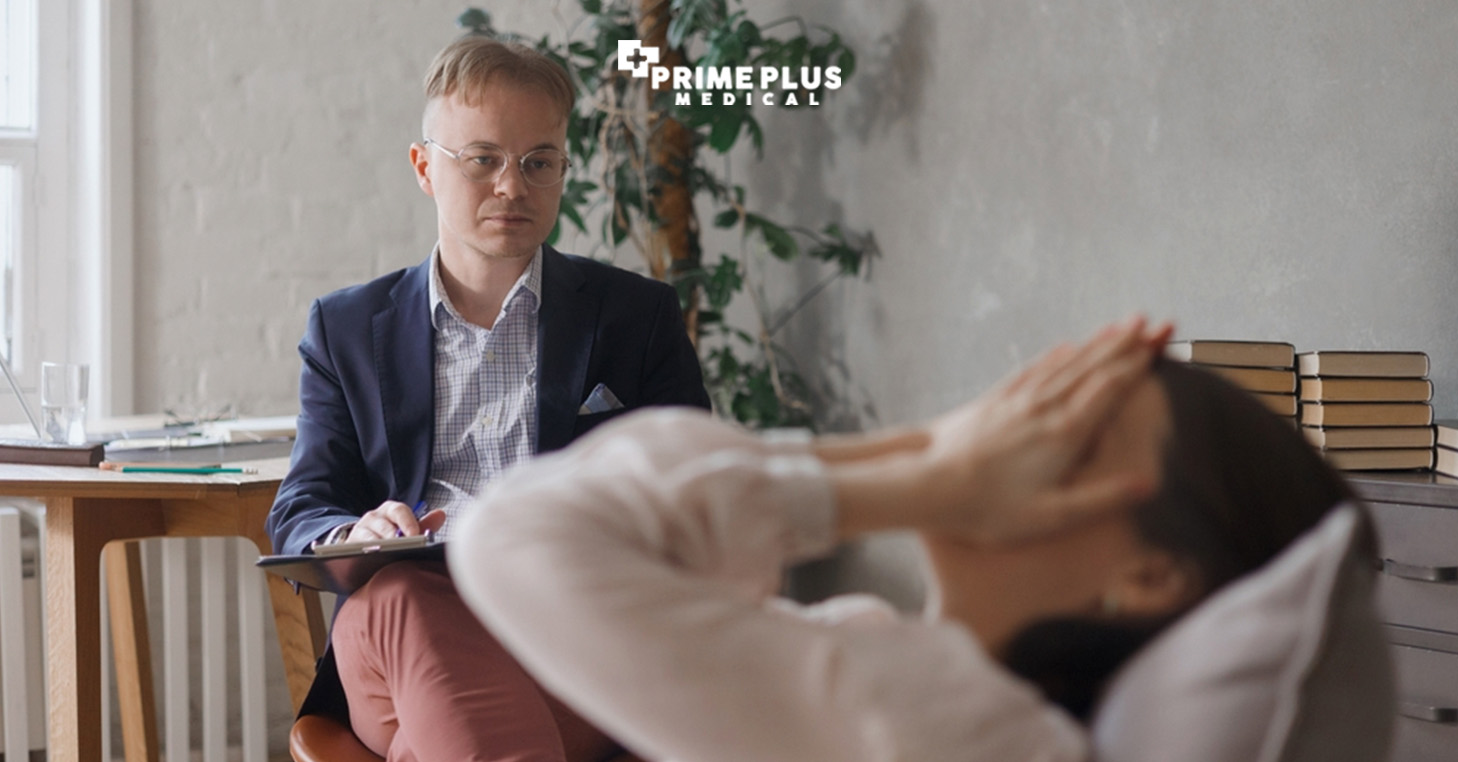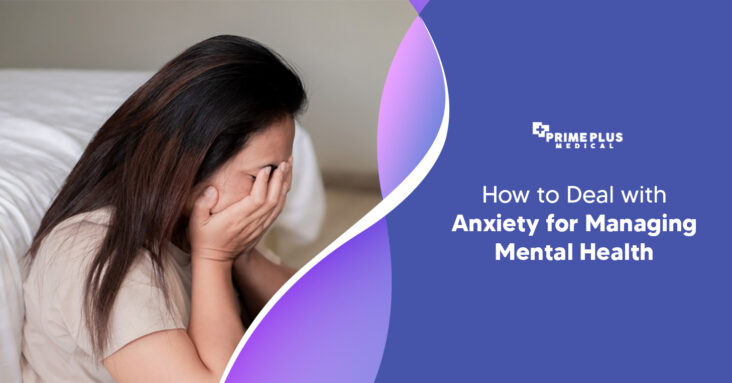Navigating life with anxiety can be challenging, but understanding how to deal with anxiety is a crucial step toward a healthier mind. In this article, we’ll explore effective strategies and practical tips to empower you in managing and overcoming anxiety and promoting mental well-being.

Understanding Anxiety
Before diving into coping strategies, it’s crucial to understand what anxiety is. Anxiety is more than just feeling stressed or worried; it’s an intense, excessive fear about everyday situations. It manifests through both emotional and physical symptoms, such as restlessness, irritability, muscle tension, and difficulty concentrating.
Symptoms of Anxiety
Recognizing the symptoms is the first step toward effective management. Common signs of anxiety include:
- Excessive worrying about upcoming events or daily activities.
- Restlessness and a feeling of being on edge.
- Fatigue and muscle tension.
- Difficulty concentrating or finding your mind going blank.
Causes of Anxiety
Understanding the root causes of anxiety is crucial for devising effective coping strategies. While each individual’s experience is unique, some common causes include:
- Stressful Life Events: Major life changes, trauma, or ongoing stressors can trigger anxiety.
- Genetics: Family history may contribute to a predisposition for anxiety disorders.
- Brain Chemistry: Imbalances in neurotransmitters can influence anxiety.
- Personality Factors: Certain personality traits, such as perfectionism or a tendency to be timid, may contribute to anxiety.
read more article What is OCD? Understand the Causes, Symptoms, and How to Avoid
5 Immediate Skills How to Deal with Anxiety
When anxiety strikes, having immediate coping skills can make a significant difference. Here are five techniques to help you navigate through challenging moments:
Deep Breathing Exercises
Engage in deep breathing exercises to activate the body’s relaxation response. Inhale slowly through the nose, hold your breath, and exhale through pursed lips. Repeat this process several times to calm the nervous system.
Mindfulness Meditation
Practice mindfulness meditation to bring attention to the present moment. Focusing on the breath and observing thoughts without judgment can help break the cycle of anxious thinking.
Progressive Muscle Relaxation (PMR)
PMR involves tensing and then relaxing different muscle groups, promoting physical and mental relaxation. This technique helps reduce muscle tension associated with anxiety.
Positive Affirmations
Replace negative thoughts with positive affirmations. Remind yourself of your strengths and capabilities, reinforcing a positive mindset and challenging anxious thoughts.
Grounding Techniques
Grounding techniques, such as the 5-4-3-2-1 method, involve engaging the senses to redirect attention away from anxiety. Acknowledge five things you can see, four things you can touch, three things you can hear, two things you can smell, and one thing you can taste.
read more article Five Common Sleep Disorders: Types, Symptoms, and Underlying Causes
10 Long-Term Strategies How to Deal with Anxiety
In addition to immediate skills, incorporating these long-term strategies into your lifestyle can foster lasting anxiety management:
- Therapy and Counseling: Seek professional help through therapy or counseling to explore the root causes of anxiety and develop coping strategies.
- Regular Exercise: Incorporate regular physical activity into your routine, as it helps reduce stress hormones and promotes the release of endorphins, improving mood.
- Healthy Lifestyle Choices: Maintain a balanced diet, get adequate sleep, and limit caffeine and alcohol intake, as these factors can significantly impact anxiety levels.
- Social Support: Build a strong support network by connecting with friends, family, or support groups. Sharing experiences and feelings can alleviate the burden of anxiety.
- Mind-Body Techniques: Explore mind-body techniques like yoga and tai chi, which combine physical movement with mental focus to promote relaxation.
- Set Realistic Goals: Break down larger tasks into smaller, manageable goals, reducing the sense of overwhelm and achievement anxiety.
- Time Management: Develop effective time management skills to prioritize tasks and create a sense of control over daily responsibilities.
- Limit Exposure to Stressors: Identify and limit exposure to stressors when possible, whether they are related to work, relationships, or other aspects of life.
- Cognitive Behavioral Therapy (CBT): CBT is a goal-oriented therapeutic approach that helps individuals identify and change negative thought patterns and behaviors associated with anxiety.
- Medication: In severe cases, medication prescribed by a healthcare professional may be considered to manage anxiety symptoms.
Check Your Family’s Health with Prime Plus
Dealing with anxiety is a multifaceted process that involves understanding its nature, recognizing symptoms, and implementing effective coping strategies. By incorporating immediate skills and long-term strategies into your daily life, you can manage anxiety and promote overall mental well-being. In addition to individual well-being, it’s vital to prioritize your family’s health. Regular check-ups with Prime Plus can ensure early detection of potential health issues and contribute to overall family well-being.

